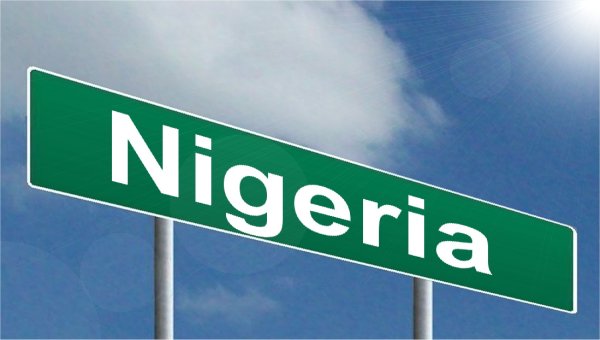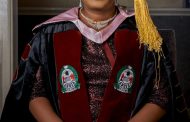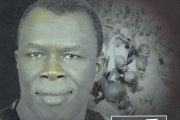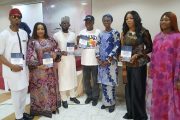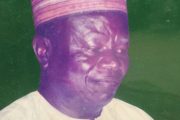There should be no pretending that there are no alarm bells ringing already and, hence, the need to resist the temptation to play the Ostrich. Instead, it is time to get out of imprisonment in what meets the eye in the figures/margins of victory or loss of elections by one strong man or another to confronting strong reservations being expressed by concerned voices. Ordinarily, it is the people who control the levers of power who should make the kind of deliberate efforts to stop matters from degenerating. In Nigeria, however, the institutional and other guarantees against the society slipping into a point of no return do not always work. It is worse when it comes to managing the fall outs of elections. Historically, this has always fallen short with the possible exception of 2015 when an incumbent declined using state power to enhance his own electoral chances. That was the Dr. Goodluck Jonathan Presidency. The point is that we must develop the independent mindedness to commend what is good even in the Devil itself and condemn what is evil even in the best of men. Goodluck Jonathan got that right absolutely.
The 2019 elections are, on the contrary, taking place against the background of a number of developments that have left many citizens wondering. One of this is the observable exclusionary tendency of the Buhari regime in the composition of government since 2015. The other one must be the pattern and dynamics of herdsmen violence and the last must be the sacking of the Chief Justice of Nigeria on grounds of fighting corruption. Only God can be precise on the cumulative impacts of these developments on the election or how unhelpful the pre-election atmosphere they collectively created.
This is the context in which the heightened concern with free, fair and credible election can be situated. It is also the context for understanding the sensitivity to election results that do not command the acceptance of the concerned voters. In other words, the claims of rigging and the rejectionist stances greeting some of the results of the February 23rd, 2019 poll reflect the sentiments of the pre-election environment. And they are signals that convey grave indicators of national ill-health. They are voices of people feeling cheated and who will not be pacified until their claims are transparently verified.
Hitherto, Nigeria’s way of responding to such grumblings in the aftermath of elections is to suggest to the loser to go to court. The challenge of justice and peace in Nigeria today is to go beyond that approach to the extent that it is now an outdated response. What is suggested is rather the setting up of a task force of the Independent National Electoral Commission, (INEC), the civil society, judiciary and the media to conduct elections in the most controversial cases, resolve such creases transparently and quickly and guarantee legitimacy of the system.
As the institution responsible for the conduct of elections, INEC should also be responsible for correcting perceived and demonstrable errors arising from such elections. Rather than throwing those with reservations to the courts, this is the quicker and more reassuring approach for all parties to such problematic elections. Doing so is the only way to get opposition to respect this election as well as whatever becomes the government there from. Already, there are states where sufficient concerns have been expressed. States such as Lagos, Kano, Yobe, Borno and Nasarawa appear to be crying for re-validation to the satisfaction of all concerned.
The assumption is that the civil society, the media and independent minded individuals in the society will take this up approach to getting quick justice in election matters. There is a risk in doing otherwise by allowing festering wounds to fetter. It would amount to covering felt injustice and yet hope that there will be peace. No! Peace doesn’t come like that. Unless all claims of grievances are promptly and transparently addressed, we leave the field open to every manner of risks. It is not enough for actors to sign peace accord but turn round to sit on strongly felt grievances. The cumulative impacts can drown the democratic order, given especially that, in Nigeria, politics is an all comer industry without quality control mechanisms. As a result, politics is the perfect example of a social space where anything goes in Nigeria. There are many actors whose sole purpose is the satisfaction of their ego, throwing public purpose to the dogs. That has made the country permanently vulnerable to quickly reaching point of no return.
Compounded by the benefits of unearned wealth from speculative capitalism, Nigerians progressively inch towards becoming a problem and, perhaps, an embarrassment for Africa in terms of setting very terrible examples in too many areas. Unfortunately, African cannot ignore Nigeria and Nigerians. But Nigeria must begin to take note of the dialectical process. Thesis and anti-thesis could produce a synthesis that can embarrass the elite who need Nigeria more than any other set of Nigerians. As they know very well, they will quickly become bystanders in world affairs without the Nigerian State. It is thus puzzling that they have no collective concern with converting their individual self-confidence, finesse and brilliance into something for every Nigerian. Unable to do that ever since, Nigeria is now the poverty headquarter of the world.
It is worth noting that the conflict around this election is a conflict about resolving that contradiction at the level of leadership. The snag now is how the intra-group contestation around the election itself does not become the primary contradiction at the expense of every element of the mystique which defines Nigeria’s power as potentially great African country. Outside that mystique, Nigeria will no longer be Nigeria. Preserving the mystique has thus become a different challenge for Nigeria.
In all cases, it must be borne in mind that democracy is not madness. Democracy is also not just free-wheeling majoritarianism. Without the tangibles, democracy as a discourse becomes madness. In Nigeria and especially in the past few years, democracy has become pure madness. The correctional process must begin with quick, transparent resolution of all major cases where the conduct of February 23rd, 2019 presidential and National Assembly poll have been contested. Those complaining should not be told to go to court. Find the resolution in the institutional processes of the INEC.

